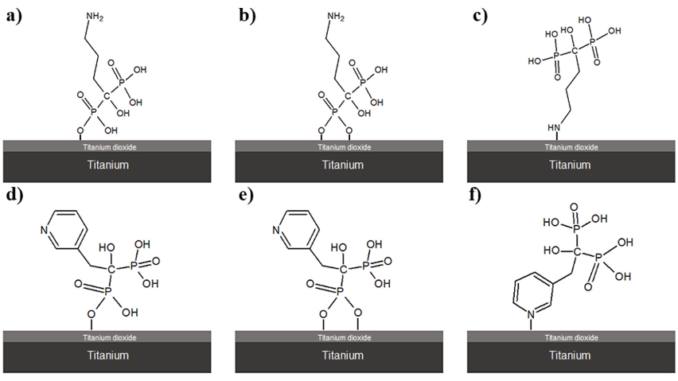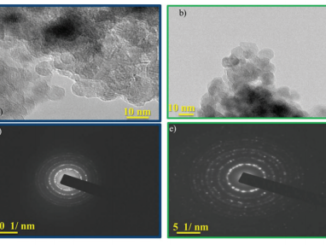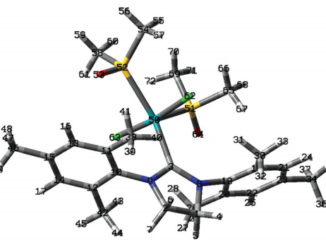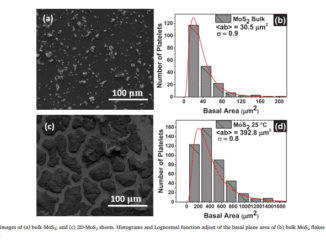
Physicochemical bisphosphonate immobilization on titanium dioxide thin films surface by UV radiation for bio-application
Abstract: Titanium and its alloys have been routinely used to replace bone and teeth. This success is mainly due to their remarkable clinical response, mechanical properties, chemical stability and appropriate biocompatibility associated to a titanium dioxide (TiO2) layer. Chemically, the TiO2 surface is mostly terminated by -OH groups. An increased amount of reactive -OH groups can be obtained by UV radiation treatment on TiO2 surface, which can be readily functionalized with bifunctional organic molecules. Among the several types of organic molecules available for reaction with -OH groups, bisphosphonates (BP) have been associated with a positive effect on new bone formation. In this way, the present contribution aims at giving an overview study from the physicochemical properties of two distinct BP (alendronate and risedronate), immobilized on the titanium surface containing hydroxylated TiO2 film by UV radiation. Surface properties such as contact angle, surface free energy and topography/roughness were evaluated. In addition, biocompatibility and mineralization tests performed with osteoblastic-like cells are presented to evaluate the potential of these functional materials to be applied in the dentistry and orthopedics fields. The results suggest that the UV treatment increased the surface wettability and allowed an oriented immobilization of BP. In addition, the BP functionalized surfaces exhibited high viability and mineralization of pre-osteoblast cells. Therefore, these compounds emerge as a potential treatment on implants surfaces.
Author(s): Bronze-Uhle, ES; Dias, LFG; Trino, LD; Matos, AA; de Oliveira, RC; Lisboa, PN
SURFACE & COATINGS TECHNOLOGY
Volume: 357 Pages: 36-47 Published: JAN 15 2019
DOI: 10.1016/j.surfcoat.2018.09.038




